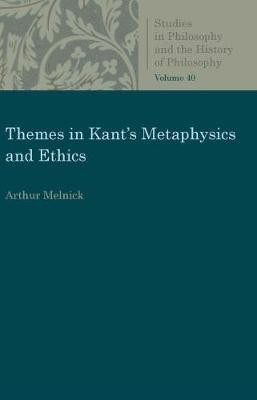Themes in Kant's Metaphysics and Ethics(English, Paperback, Melnick Arthur)
Quick Overview
Product Price Comparison
Intended for those interested in Kant's contribution to philosophy, this volume provides an overview of Kant's arguments concerning central issues in metaphysics and ethics. Arthur Melnick argues that the key to all of Kant's arguments is his constructivist theory of space and time. Melnick shows that Kant's arguments for causation and for substance, as well as Kant's refutation of Cartesian skepticism, are far more cogent than usually thought. Further, this theory distinguishes Kant's idealism from phenomenalism, verificationism, and internal realism. For Kant, metaphysics is tied to cognition; thus one must understand his account of cognition in order to fully grasp his metaphysics. Melnick argues that for Kant, thoughts or cognitions are rules for situating oneself with regard to reality-contacting procedures. In accord with this account, Melnick defends both Kant's conception of categories and a robust correspondence theory of truth. The essays on ethics revolve around the notion of practical reasoning. Melnick contends that Kant is correct that such reasoning cannot be causally determined. This undercuts any compatibilist account of freedom of action as action controllable by practical reasoning. Kant's moral theory is claimed to be a version of social-contract theory. This explains some troublesome aspects in Kant's formulations of his categorical imperative. Melnick claims that such theories, even with Kant's connection of them to autonomy, do not function well as motivational justifications of morality. He offers a different version of a categorical imperative that is supposed to avoid this problem.


